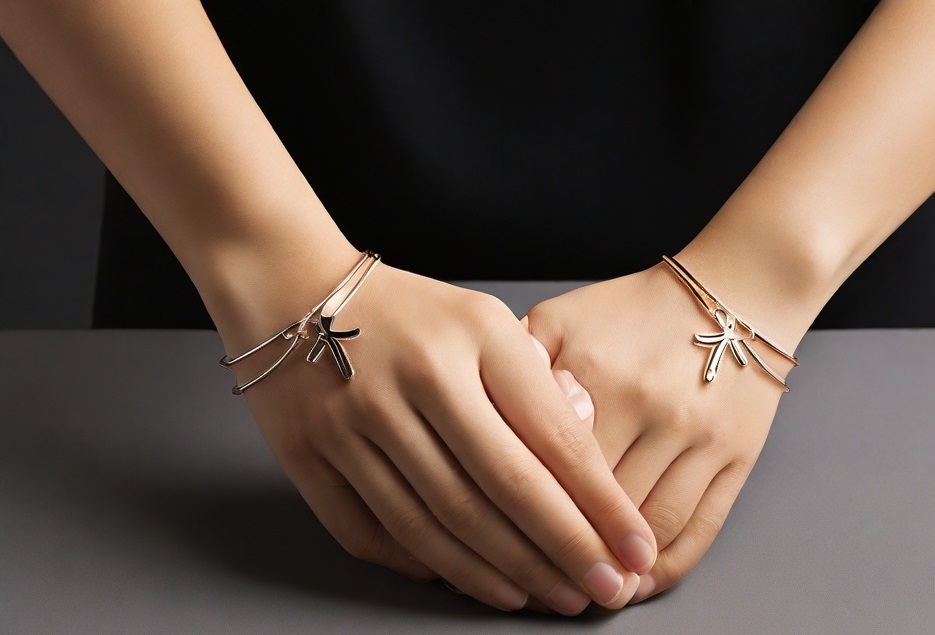He Who Has No Faith in Himself Can Never Have Faith in God

Faith is an essential part of life. For centuries, it has guided people through life’s challenges, offering hope and a sense of purpose. One of the most profound insights on faith comes from the teaching that “he who has no faith in himself can never have faith in God.” This saying challenges us to reflect on the relationship between self-belief and spiritual belief, as well as how the two are interwoven to create a harmonious, fulfilling life.
But what does it really mean to have faith in oneself, and how does this affect our relationship with God or a higher power? Let’s explore the depth of this teaching and discover the role of self-faith in a meaningful spiritual journey.
Understanding Faith in Oneself
Faith in oneself isn’t merely about being confident in one’s abilities or being secure in one’s identity. Instead, it goes deeper: it’s the unshakeable belief that, despite challenges, mistakes, or imperfections, one possesses inner strength and potential. This type of faith fuels resilience, courage, and self-worth. It isn’t limited by the successes we achieve or the skills we accumulate but is rooted in an innate sense of worthiness and purpose.

When people lack faith in themselves, they often become more susceptible to feelings of doubt, insecurity, and helplessness. Without self-faith, it’s hard to face life’s difficulties with courage or make meaningful decisions confidently. This lack of self-assurance can also impair our relationships with others and with God.

The Spiritual Significance of Self-Faith
Faith in God requires trust, openness, and humility. However, if one lacks these qualities toward oneself, how can one offer them to God? Self-faith allows us to see our own intrinsic value, which fosters a healthy self-image and a willingness to grow and improve. When we see our own worth, we can see beyond our ego and accept a divine connection.
Believing in oneself creates a foundation for believing in something greater. It’s akin to a flame that, when nurtured, can grow into a powerful force of light. By first embracing our own potential and worth, we cultivate the strength and stability needed to fully embrace the mystery and majesty of the divine.
How Self-Doubt Interferes with Spiritual Faith
When a person lacks faith in themselves, they often approach God or spirituality with desperation, fear, or a sense of inadequacy. Their prayers and thoughts may be full of doubt, focusing more on their perceived shortcomings than on a sense of divine grace. This outlook can lead to a limited or transactional relationship with spirituality, one that’s built more on begging or bargaining than on genuine communion and trust.

For instance, if someone constantly feels inadequate or unworthy, they may believe that God is distant or unconcerned with their life. This feeling can create a barrier, making it difficult for them to feel connected to a higher power. The absence of self-faith becomes a self-imposed obstacle, preventing them from experiencing the peace and assurance that come from a balanced spiritual faith.

Self-Faith as a Pathway to Trusting God
True spiritual faith doesn’t stem from weakness or dependency; it grows from a place of strength, rooted in the understanding that one is part of something greater than oneself. When we develop a belief in our worthiness and capabilities, we can approach spirituality with gratitude and openness. Self-faith enables us to trust God more deeply because we know we are not fundamentally flawed or unworthy.
For example, consider someone who believes in their ability to overcome adversity. They recognize their inner resilience and trust that whatever challenges they face, they have the strength to rise above them. When this person turns to God, they aren’t seeking someone to fix their problems or validate their existence; they’re seeking guidance, wisdom, and support. This allows for a more sincere, grounded connection to the divine.
Self-faith doesn’t make us rely less on God. Instead, it makes our reliance on God more genuine and enriching, as we approach God as capable and whole individuals who seek a higher understanding of life’s mysteries.
Building Faith in Oneself
Developing self-faith is a gradual process that requires introspection, patience, and resilience. Here are a few ways to begin building a strong foundation of self-faith:
1 . Acknowledge Your Intrinsic Worth
Every person has inherent worth, regardless of their achievements or mistakes. Understanding and accepting this can be transformative. Remind yourself daily that you are valuable simply because you exist, and that your life holds purpose.
2 . Embrace Your Strengths and Weaknesses
Self-faith doesn’t require perfection. Acknowledge both your strengths and weaknesses, understanding that they are part of who you are. When you can accept your flaws and strengths with humility, you lay the groundwork for true growth and self-respect.
3 . Celebrate Small Victories
Building self-faith is often about small, consistent steps. Celebrate each victory, no matter how small. This could be as simple as keeping a promise to yourself, completing a task, or showing kindness to others. Each act of commitment reinforces self-belief.
4 . Challenge Negative Thoughts
Self-doubt often manifests in negative self-talk. Challenge these thoughts when they arise by questioning their validity. Replace them with affirmations that remind you of your strengths and resilience.
5 . Seek Out Growth Opportunities
Put yourself in situations that challenge you and allow you to grow. When you face and overcome challenges, you build a track record of resilience that strengthens self-faith over time.
6 . Reflect on Your Spiritual Journey
Think about your relationship with God or your spirituality. Reflect on how it feels to connect with the divine and see if self-doubt is affecting that connection. With this awareness, you can work to build a more balanced and trusting relationship with God.
Faith in Self and God: A Symbiotic Relationship
Faith in oneself and faith in God are not mutually exclusive but mutually reinforcing. Self-faith opens the heart to receive divine love and wisdom without barriers. As self-faith grows, so does our capacity to trust in a higher power, and as our spiritual faith deepens, it further strengthens our sense of purpose and self-worth. This cycle of mutual reinforcement allows us to live life with a balanced sense of humility and strength, knowing we are both guided and capable.

Concluding Thoughts: Embracing Inner and Higher Faith

In essence, the teaching that “he who has no faith in himself can never have faith in God” reminds us that both self-faith and spiritual faith are essential to a balanced, fulfilling life. By cultivating faith in our own worth and potential, we make space for a profound, authentic relationship with the divine. We come to understand that, just as we are, we are deserving of love, support, and guidance from a higher power.
So, let’s embark on a journey of self-discovery, embracing our own worth and potential, and allow this self-faith to blossom into a deeper, richer faith in God. In doing so, we discover a life full of purpose, connection, and peace, grounded in the harmony between our inner faith and our higher faith. Faith in oneself is not the absence of humility but the true beginning of a life lived in alignment with divine purpose.
